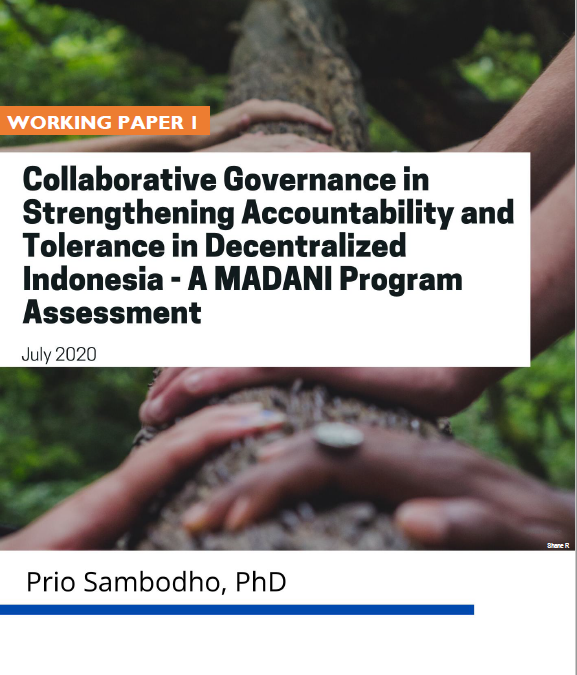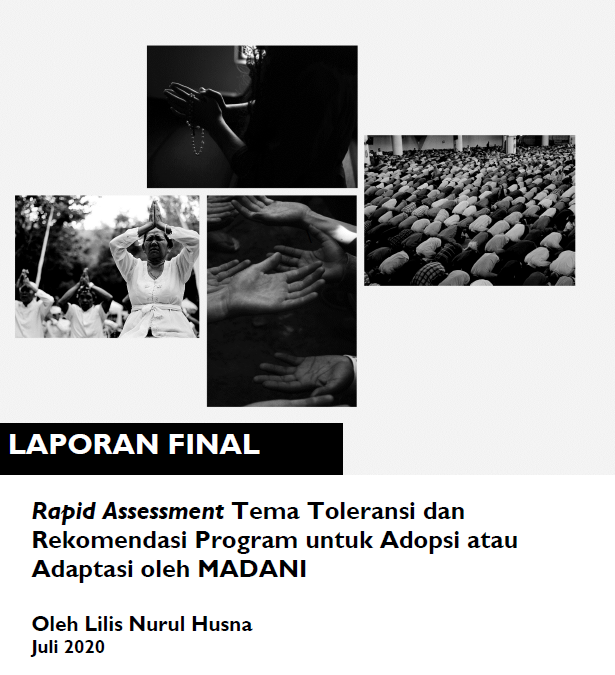
Briefing Note: “Analysis of Results of Initial 2020 Round of Lead Partners’ Organizational Performance Index Self-Assessments”, March 2021
MADANI’s 32 Lead Partners CSO carries out annually Organizational Performance Index (OPI) self-assessments. In the self-assessments, Lead Partners identify the level of their organizational performance, acknowledged their organizational level of maturity, and prioritized their areas for capacity development. The OPI is a standardized USAID measurement that comprehensively assesses the organization’s external performance in relation to five domains: efficiency, effectiveness, relevance, sustainability and resilience. Done regularly, the OPI allows organizations to identify changes in their external performance over time and to formulate evidence-based organizational strengthening plans. The present note is a brief analysis of the main results and trends for the initial 32 OPIs conducted by MADANI partners in 2020. This analysis will be updated yearly.

“MADANI Baseline Survey in 32 Districts in Six Provinces”, November 2020
The baseline study provides historical points of reference to inform MADANI program planning, target setting, monitoring and evaluating change during and after program implementation as well as impact assessment. Both qualitative and quantitative data collection methods were used, including a survey, key informant interviews (KII) and review of local government budgets. The survey targeted citizen and government representatives in each district, resulting in a total of 1,913 informants for the targeted 32 districts. Key informant interviews were carried out with a total of 236 local government officials and frontline service providers.

Working Paper 1: “Collaborative Governance in Strengthening Accountability and Tolerance in Decentralized Indonesia – a MADANI Program Assessment”, July 2020
The objective of this Working Paper is to share lessons learned during preparation for implementation of the USAID-MADANI Civil Society Support Initiative program. The focus is on collaborative governance among civil society organizations and local governments in Indonesia, specifically aimed at enhancing government accountability and responsiveness. It focuses on understanding key barriers, learning points, and experiences based on previous civil society empowerment and local governance programs at the subnational level in Indonesia. It also translates these findings into concrete recommendations to support MADANI and other civil society strengthening programs and activities.

Rapid Assessment Tema Toleransi dan Rekomendasi Program untuk Adopsi atau Adaptasi oleh MADANI, July 2020
Assessment studi ini tentang tema toleransi untuk program USAID-MADANI, diharapkan dapat berkontribusi menjawab tantangan intoleransi, khususnya untuk memberikan kontra narasi bagi orang-orang yang masih berpikir ekslusif dan ekstrim, dan dengan gencar menyebarkan paham intoleransi, ujaran kebencian dan berita bohong atau hoax. Dengan strategi pendekatan memperluas ruang-ruang rekognisi sosial, melalui peran organisasi masyarakat sipil, diharap adanya dukungan agen perubahan yang benar-benar mempengaruhi proses transformasi toleransi.


